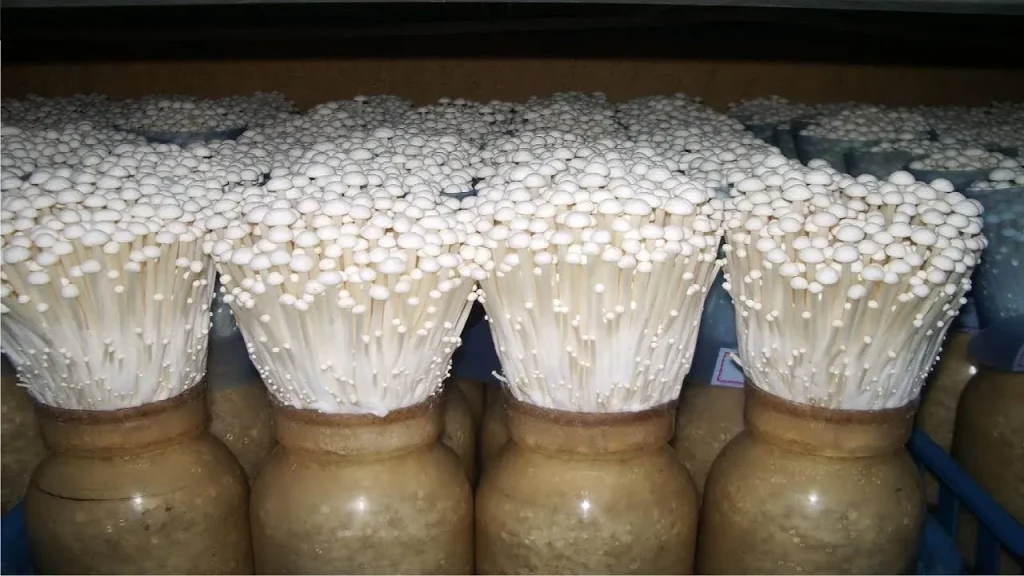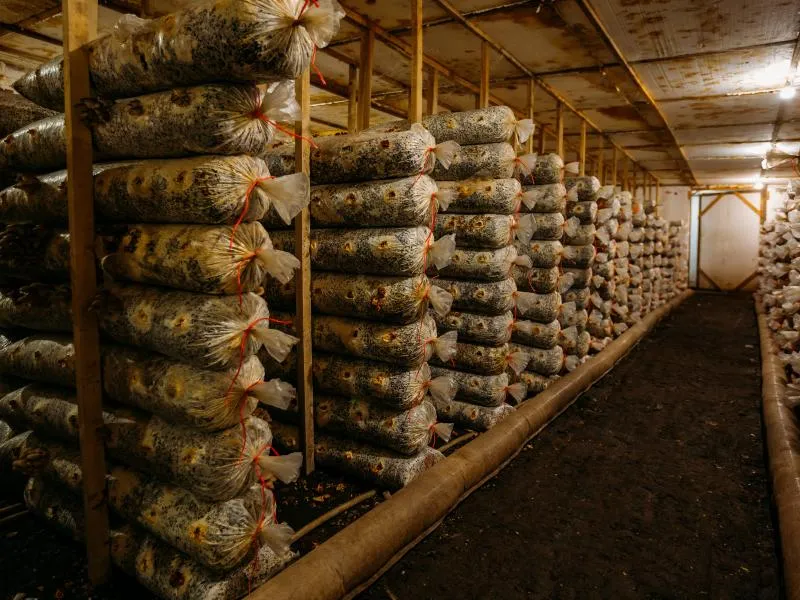Bihar has emerged as the undisputed leader in mushroom production in India, reflecting a remarkable journey of agricultural innovation and economic upliftment. Known for its fertile soil and favorable climate, the state has harnessed these natural advantages to become a powerhouse in the mushroom cultivation sector.

According to the National Horticulture Board, Bihar produced over 28,000 tonnes of mushrooms in the 2021-22 period, accounting for 10.82% of India’s total output. This impressive figure places Bihar at the forefront of the country’s mushroom industry, a significant leap from its 13th place ranking just three years ago. The state has outpaced Odisha, the former leader, establishing itself as a dominant player in the sector.
Several factors have contributed to Bihar’s rise in mushroom production:
· Optimal Climate and Fertile Soil: The state’s moderate temperatures and high humidity levels provide ideal conditions for mushroom growth. The fertile alluvial soil is rich in nutrients, supporting robust cultivation.
· Government Initiatives: Bihar’s government has actively promoted mushroom farming through subsidies, training programs, and workshops. These initiatives have equipped farmers with the knowledge and resources to adopt and enhance mushroom cultivation.
· Entrepreneurial Farmers: Bihar’s farmers have embraced mushroom farming with enthusiasm, diversifying their agricultural practices and investing in this high-yield crop. Their willingness to adopt modern techniques has significantly boosted production.
India’s mushroom cultivation predominantly focuses on four types: button, oyster, paddy straw, and milky mushrooms. Among these, button mushrooms are the most popular, comprising about 75% of the nation’s output. Bihar’s production is centered around:
· Button Mushrooms: Known for their mild flavor and versatility in various dishes, they are the most widely grown variety in Bihar.
· Oyster Mushrooms: Prized for their delicate texture and unique taste, these mushrooms are a staple in gourmet cooking.
· Milky Mushrooms: Valued for their high nutritional content and longer shelf life, they cater to the health-conscious market.

Mushroom farming has significantly impacted Bihar’s rural economy. The industry has generated numerous employment opportunities, ranging from cultivation to packaging and distribution. For many small-scale farmers, mushroom farming has led to increased incomes and improved living standards.
The rise in mushroom production has also positioned Bihar as a significant player on the national and international stage, with its produce meeting the growing demand in various markets.
With continuous support from the government and the entrepreneurial drive of its farmers, Bihar is well-poised to maintain its leadership in mushroom production. The state’s focus on innovative farming techniques and sustainable practices will likely propel it further in the global arena of mushroom cultivation.
